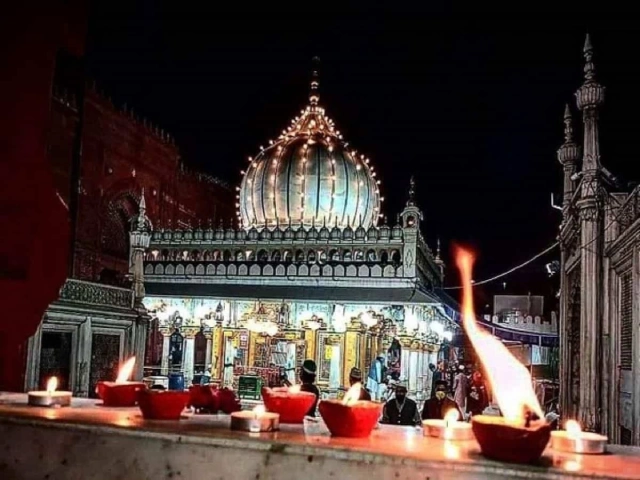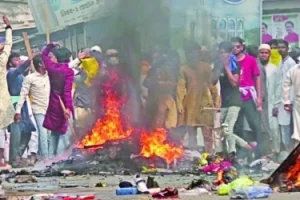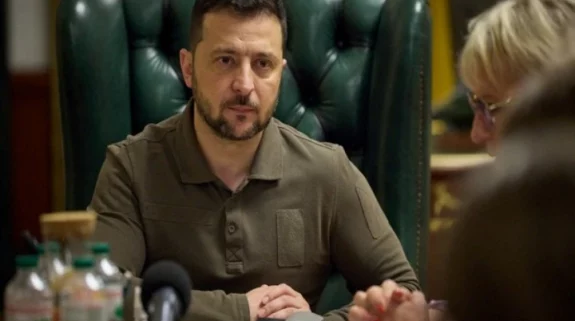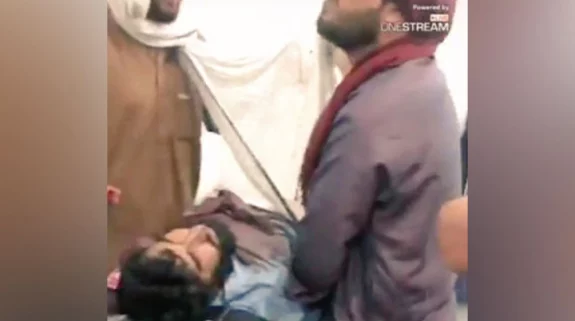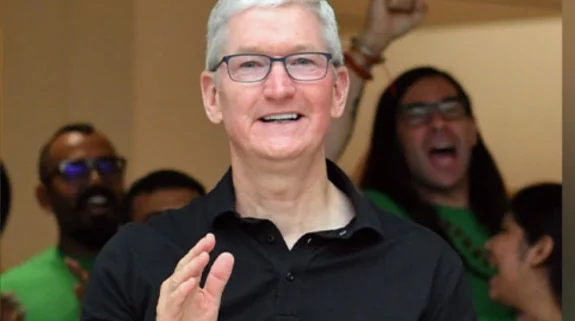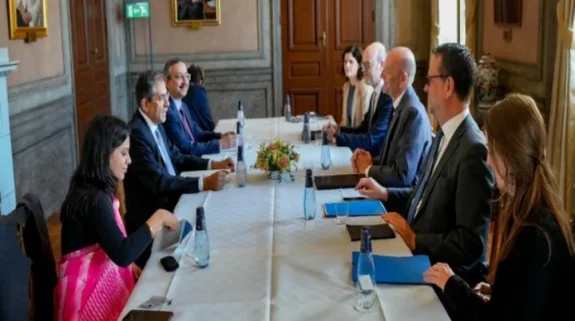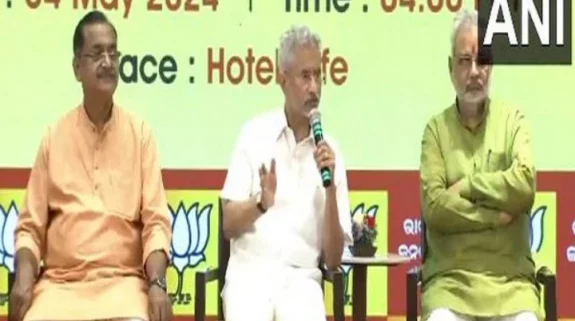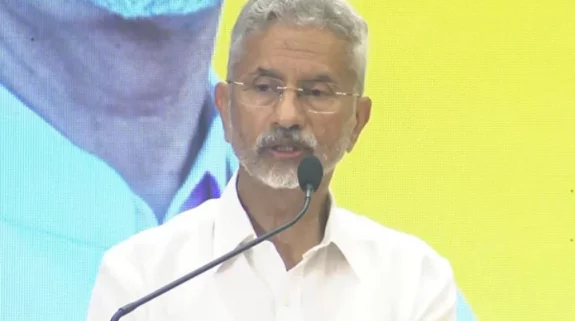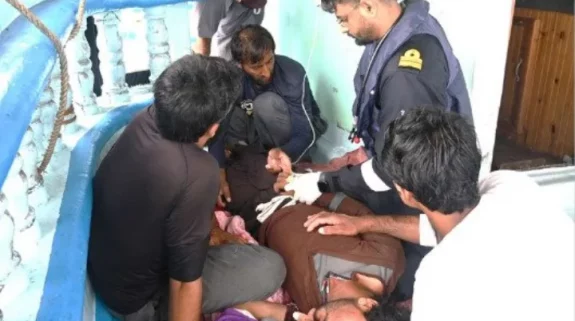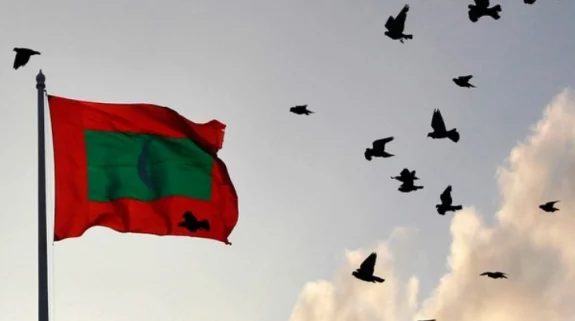Islamist radicalism around the world seems to be declining. At least it really seems so, given the dwindling cases of violent extremism and shrinking space for its various narratives on all types of media platforms. Besides efforts of the governments across the globe, the defeat of toxic Islamism has been ensured by a plethora of counter narratives religiously disseminated by organisations and individuals.
Two prominent organisations of international repute and authenticity that have been active on this front have been London-based Quilliam Foundation (now defunct) and the Pakistan-Malaysia-based Al-Mawrid organisation. Besides, a number of Sufi and youth-oriented outfits like Muslim Student Organisation (MSO), which operates throughout India, are constantly organising seminars and other programmes to warn the youth of perils posed by radicalism and how to escape its poisonous tentacles.
Appeal from MSO
Let’s wear the Best Clothes, Not New Clothes This Eid.
Say “No To Eid Shopping” This Year.
Muslim Students Organisation (MSO) of India.@DewasMso @MSOBihar @msoofindia @MSO_Karnataka @mso_rajasthan pic.twitter.com/rcjCWFFPSL
— MSO AMU (@mso_amu_) May 3, 2020
India has tried to keep international terrorism as a primary issue in global forums, and as chair of G20, New Delhi has flagged terrorism and its myriad narratives.
UN Ambiguity and India’s Concerns
In the years following 9/11, New Delhi’s warnings about the dangers of terrorism gained renewed attention, and generally with backing from previous Indian worries. At the UN, basic disagreements over what constitutes terrorism and how to combat it have persisted for many years. Member states have been unable to agree on a single standard, preferring to utilise ambiguous terminology and vacillating between scholarly interpretations and practical policy implementations, which are primarily driven by individual States and their geopolitical objectives.
India has suffered significant economic and human capital losses as a result of the UN Security Council’s (UNSC) lack of consensus on combating terrorism. Indian soldiers still lose their lives fighting terrorism in places like Kashmir virtually weekly as of today.
Security-based counterterrorism measures have been the primary response of the international community to terrorism. The phenomena of foreign fighters, the radicalisation or fanning out of violent extremism, and lone-wolf terrorism have not, however, been adequately addressed by such measures.
Narratives of Radicalism
Islam and Muslims the world over have faced a lot of wrath recently because of extremist paths pursued by some Muslim organisations and the violent incidents that involved such outfits. While Muslim scholars have brushed aside allegations that such extremism, or radicalism, or more appropriately narratives of terror, are the result of mainstream Islamic discourse, the truth is that the extremist ideologies are the direct result of religiosity taught in madrasas, policies adopted by Islamist political parties and sermons delivered by renowned clerics.
Most of such radical narratives have been prevalent in West Asian countries, Pakistan and Afghanistan. India, which is in close vicinity of Pakistan, has also encountered the menace of extremism. Radical outfits of Pakistan like Jaish-e-Muhammad (JeM), Lashkar-e-Taiyyeba (LeT) and some splinter elements of Al Qaeda have been spreading radical thoughts in India.
For the convenience of understanding, some key points of such radical narratives can be summed up as following:
1) Establishment of Khilafah, or an Islamist world government, is a religious duty of all Muslims. They have to strive in all possible ways to make it happen.
2) Muslims make for one nation and whichever part of the world they might be living in, they are bound by their duty towards Islam.
3) If Muslims depart from their adherence to Islam and its tenets, they cease to be Muslims and thus liable to punishment.
4) Polytheism, disbelief and apostasy must be punished.
5) The Qur’an requires its followers that if they have the strength, they should wage war (jihad) against oppression and injustice.
6) Western forms of democracy and nation state are evil.
7) If at some place a Muslim government exists, it should be asked to implement the Shari’ah (like in the case of Pakistan).
Counter to Radical Narratives
Al-Mawrid Institute, headed by Javed Ahmad Ghamidi, a leading Pakistani scholar, who after assassination attempts on him fled first to Malaysia and then to Australia, has been running a campaign to counter narratives presented by radical outfits. According to Ghamidi, the counter to radical narratives should not be advocacy of secular principles; rather they should be countered in the light of religious injunctions. He has given point by point rebuttal of radical narratives.
1) The message of Islam is primarily addressed to an individual. It wants to rule the hearts and minds of people. The directives it has given to the society are also addressed to individuals who are fulfilling their responsibilities as the rulers of Muslims. Hence, it is baseless to think that a state also has a religion and there is a need to Islamise it.
2) Neither is khilafah a religious term nor its establishment at the global level a directive of Islam. After the first century hijrah, when celebrated jurists of the Muslims were among them, two separate Muslim kingdoms, the Abbasid kingdom in Baghdad and the Umayyad kingdom in Spain had been established and remained established for many centuries. However, none of these jurists regarded this state of affairs to be against the Islamic shari’ah. The reason is that there is not a single directive found on this issue in the Qur’an and the Hadith.
3) The basis of nationhood in Islam is not Islam itself, as is generally understood. At no place in the Qur’an and Hadith has it been said that Muslims must become one nation. On the contrary, what the Qur’an has said is: (49: 10) اِنَّمَا الْمُؤْمِنُوْنَ اِخْوَةٌ (All Muslims are brothers to one another, (49:10)). Thus the relationship between Muslims is not based on nationhood; it is rather based on brotherhood.
4) Polytheism, disbelief and apostasy are indeed grave crimes; however, no human being can punish another human being for these crimes. This is the right of God alone. In the Hereafter too, He will punish them for these crimes and in this world it is He Who does so if He intends.
5) The directive of jihad given by Islam is war for the cause of God; therefore, it cannot be waged while disregarding moral restrictions. Ethics and morality supersede everything in all circumstances and even in matters of war and armed offensives, the Almighty has not allowed Muslims to deviate from moral principles. Hence, it is absolutely certain that jihad can only be waged against combatants.
6) Centuries before the thinkers of the present age, the Qur’an had declared: اَمْرُهُم شُوْرٰی بَينَهُمْ (42: 38) (the affairs of the Muslims are run on the basis of their mutual consultation, (42:38)).This clearly meant that an Islamic government would be established through their consultation, everyone would have equal rights in this consultation, whatever done through consultation could only be undone through consultation and every individual would become part of the consultative process. This is precisely what democracy is.
7) If at some place a Muslim government exists, it is generally asked to implement the shari’ah. This expression is misleading because it gives the impression that Islam has given the right to a government to forcibly implement all the directives of the shari’ah on people. The fact is that the Qur’an and Hadith do not give this authority to any government.
Another organisation that is active to counter radicalism is the Muslim Student Organisation of India. The MSO, which has sharp Sufi leanings, claims that it was established to counter radicalism being disseminated by outfits like Student Islamic Movement of India (SIMI) in late 70’s and early 80’s. In recent years, the organisation has become the most known and widely followed by Indian youths. It devotedly organises seminars, discussions and workshops to make the youths aware of how Islamic thoughts are distorted by radical outfits to prepare violent and anti-state elements. The organisation has specifically emphasised on a treasure trove of Sufi heritage of India to awaken the youth to pursue path of religious moderation and socially responsible life. “We have combated extremism equally extremely. Sufism is the soul of our thoughts and practice. With Allah’s grace, our network is growing very fast in India and youths connected to us are making progress in fields like education, technology and public life. You can yourself see how radicalism and its proponents have receded in the recent past,” MSO chairman told India Narrative.
Britain-based Quilliam Foundation was totally devoted to producing and propagating counter-extremism discourse till its liquidation in 2021. It published a practical guide to counter extremist propaganda online. Besides, authors associated with the foundation have written a number of popular books on the subject, including The House of Islam: A Global History authored by Ed Hussain.
The Quilliam was established in 2007 by Ed Husain, Maajid Nawaz and Rashad Zaman Ali, three former members of the Islamist group Hizb ut-Tahrir. It was named after Abdullah Quilliam, a 19th-century British convert to Islam who founded Britain’s first mosque.
Quilliam argued that Islam is a faith, not an ideology, and that “Islam is not Islamism”. It also argued that “Islamists are extreme because of their rigidity in understanding politics”. The organisation opposed any Islamist ideology and championed freedom of expression.
Also Read: How ISIS ideology is a cocktail of jihadist ideas






